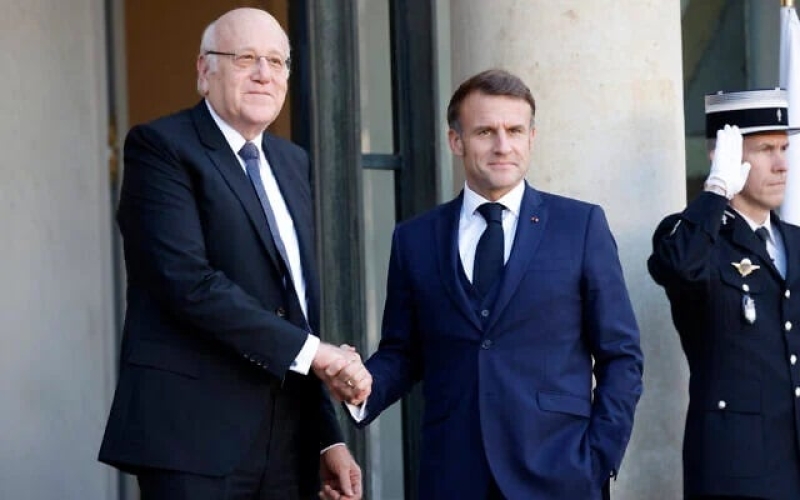- Tk 500cr Drive to Turn Haor Fallow Land Into Farmland |
- Tarique Rahman returns home amid rapturous reception |
- Home After 17 Years: Tarique Returns to Gulshan Residence |
- Tarique Calls for United Effort to Build a Safe Bangladesh |
- Tarique leaves for 300 feet area from airport |
Macron Visits Lebanon to Support New Leadership

French President Emmanuel Macron arrived in Beirut on Friday to offer his backing to Lebanon's newly-elected leadership as the country embarks on a crucial phase in its tumultuous history. Macron's visit comes just days after General Joseph Aoun was elected president on January 9, ending a prolonged political vacuum that lasted over two years. Aoun swiftly appointed Nawaf Salam as prime minister-designate, setting the stage for a new government to address Lebanon's pressing challenges.
Lebanon is emerging from the aftermath of a devastating war between Israel and Hezbollah, as well as a deepening economic crisis that has crippled the nation for years. With the political void now filled, Aoun and Salam face the daunting task of stabilizing the country and securing a future for its citizens.
Macron's visit, aimed at reinforcing Lebanon's sovereignty, prosperity, and unity, marks a critical moment in the country’s recovery. Outgoing Prime Minister Najib Mikati is expected to greet Macron at Beirut airport upon his arrival early on Friday. The French president is also scheduled to meet with UN Secretary-General Antonio Guterres in the Lebanese capital, as the deadline for fully implementing the Israel-Hezbollah ceasefire deal looms on January 26.
In his remarks, the French presidency emphasized that Macron's visit is intended to support Lebanon's new leadership in navigating the complex political landscape. Analysts note that Hezbollah’s relative weakening in the recent conflict with Israel created an opening for Lebanon's fractured political factions to agree on electing Aoun as president and supporting his nomination of Salam as prime minister.
France, which governed Lebanon as a mandate after World War I, has maintained strong ties with the country since Lebanon's independence in 1943. In a call on Thursday, Macron and Saudi Crown Prince Mohammed bin Salman reiterated their full support for the formation of a "strong government" in Lebanon. According to the French presidency, the new government must bridge the country's deep divisions, ensure the respect of the Israel-Lebanon ceasefire, and implement critical reforms to restore Lebanon’s stability and sovereignty.
Macron's itinerary also includes meetings with influential political figures in Lebanon, including Nabih Berri, the powerful speaker of parliament and an ally of Hezbollah. Additionally, he will meet with Aroldo Lazaro, the head of the United Nations Interim Force in Lebanon (UNIFIL), as well as the members of a multi-national committee tasked with monitoring the ceasefire's implementation.
The ceasefire deal, reached in late November, requires the Lebanese army to deploy alongside UN peacekeepers in southern Lebanon, while Hezbollah is obligated to withdraw its forces from the area and dismantle any remaining military infrastructure. The agreement, which is seen as a critical step toward de-escalating tensions in the region, faces a challenging implementation process with the January 26 deadline fast approaching.
At a donor conference in Paris last October, France pledged to take "symbolic gestures" to rally international support for Lebanon, a commitment that remains central to Macron's current diplomatic efforts. As Lebanon faces its greatest challenges yet, the international community's role in assisting the country’s recovery is becoming increasingly vital.

